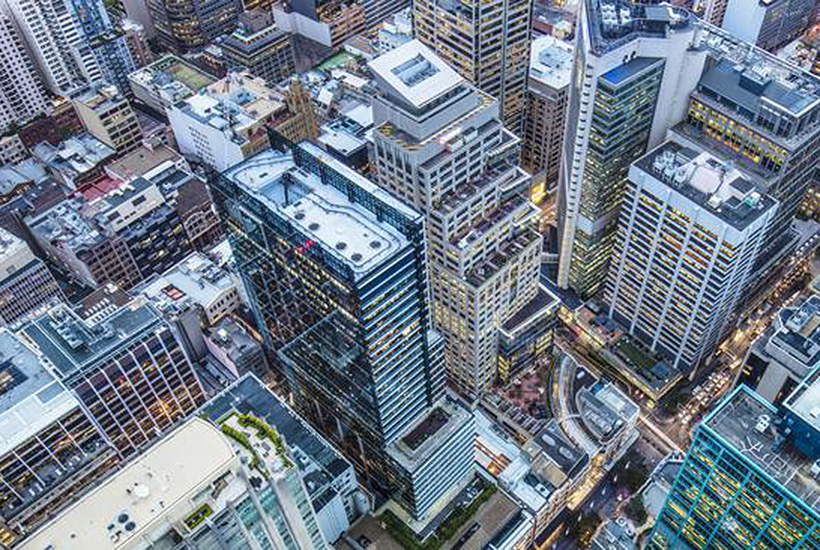Stamp duty: How NSW’s property tax proposal could help property buyers

Other states have been urged to follow the New South Wales government’s push to axe stamp duty, a move it says will save the average property buyer tens of thousands of dollars.
The NSW government wants to give property buyers the choice to not pay stamp duty upfront and instead pay a smaller annual property tax.
The real estate industry has called on other states to also get rid of stamp duty, but do not want it replaced with another property tax.
NSW Treasurer Dominic Perrottet said the proposed reform of the property tax system, unveiled in the state budget on Tuesday, would be the most important state economic reform in the last half century.
“Stamp duty is a relic from a bygone era when you picked one career, started a family, bought a home and basically settled in for life,” Mr Perrottet said.
“It adds tens of thousands of dollars to the cost of the biggest financial commitment most people ever make.
“If you want to move, change jobs or switch careers, upsize or downsize to match your family size, stamp duty can be a spanner in the works.”
Mr Perrottet said a number of other state jurisdictions were working on similar reforms.
The Real Estate Institute of Australia said there needed to be a co-ordinated approach to stamp duty reform as the Australian economy emerged from the coronavirus recession.
“It’s time for Australia’s treasurers to get serious about getting rid of stamp duty,” REIA president Adrian Kelly said.
REA Group chief economist Nerida Conisbee said the benefits of changing stamp duty to a land tax-based system had been well documented.
She said it would mean a more stable revenue source for the NSW government that was less dependent on property booms.
“There is no better time to make sweeping changes to tax legislation as federal and state governments look to ways to get us out of recession,” Ms Conisbee said.
Mr Perrottet said the proposed reforms could inject $11 billion into the NSW economy over the first four years, helping stimulate the economy as it recovers from the COVID-19 economic downturn.
Business Council of Australia chief executive Jennifer Westacott said NSW had taken a bold step in putting major tax reform on the agenda.
“While some jurisdictions are talking about reform, NSW is acting,” Ms Westacott said.
Mr Kelly said Australian owner-occupiers were paying on average 4% of the entire value of the property in government stamp duties.
“Stamp duty reform, while a major exercise, would have outstanding ‘knock on’ benefits to the economy and help Australians into the right housing solution for whatever stage they are in their life,” he said.
The ACT is already phasing out stamp duty and replacing it with a broad-based land tax, over a 20-year transition that began in 2012-13.
How does the NSW model work?
The NSW government ultimately wants to get rid of both stamp duty and land tax, replacing them with the new annual property tax.
“This will be like the Netflix of property tax,” Mr Perrotet said.
Mr Perrottet said the transition would take decades.
“In 20 years you’d probably still have around 50% of properties right across the state either still being able to choose stamp duty or this new property tax,” he told Nine Radio on Wednesday.
There would be no double taxation, the government’s consultation paper said.
If someone had already paid stamp duty on their property, they would not have to pay the property tax.
Once a buyer opts to pay the new property tax, subsequent owners must also pay the property tax.
The NSW government said removing the upfront cost of stamp duty could remove tens of thousands of dollars from the property purchase process.
Stamp duty is paid by the buyer of residential or commercial land, based on the sale price. The average rate in NSW is 4%.
What about investors, tenants and commercial property?
Owner-occupiers and farmers would pay lower rates than residential investors, who would pay lower rates than commercial property owners.
The government said the changes would not impact tenants and protections would apply so the property tax did not result in rent increases without a tenant’s agreement.
The indicative rates were:
- Owner-occupiers: $500 plus 0.3% of the unimproved land value
- Residential property investors: $1500 plus 1.0%
- Farmers: Nil plus 0.3%
- Commercial property owners: Nil plus 2.6%.
The consultation paper said property tax rates for commercial properties could be designed to generate the same amount of revenue, over time, that the sector already pays through stamp duty and land tax.
Mr Raine was concerned about the impact on sophisticated investors.
“We need to make sure that we aren’t robbing Paul to pay Peter by introducing an annual tax that will place more financial stress on landlords with multiple investment properties,” he said.
How will it impact the property market?
The consultation paper said the proposed changes would place downward pressure on property prices over the long term.
The removal of stamp duty is expected to increase the number of property transactions.

Tax reforms could help commercial property buyers.
The consultation paper noted Australian and international evidence suggested property transactions could increase by about 50% in the long run.
“More housing transactions would also spill over into increased spending on home furnishings and renovations, and increase income and employment in sectors such as real estate services and other professional services like solicitors and conveyancers, finance professionals, engineers and surveyors,” the paper said.
Real Estate Institute of NSW CEO Tim McKibbin said stamp duty reform has been long overdue.
“Stamp duty is an inefficient, inequitable tax that distorts market activity,” Mr McKibbin said.
“Not only does it discourage people from moving, especially downsizers who would otherwise free up housing stock, it also limited the additional expenditure home buyers could otherwise engage in.”
But the REINSW and REIA said the industry did not support the replacement of one property tax with another property tax.
“Whilst reforms in the NSW budget may prove to be a promising start, replacing one tax with another does not solve the long-term problem Australia’s property market is facing,” Mr Kelly said.
Mr McKibbin said the property industry was shouldering a disproportionate amount of the state’s tax burden.
“A land tax may be more broadly-based than stamp duty, but it still only applies to property. Investors in shares, for instance, pay no comparable tax.”
The consultation process for the NSW reforms runs until March.







